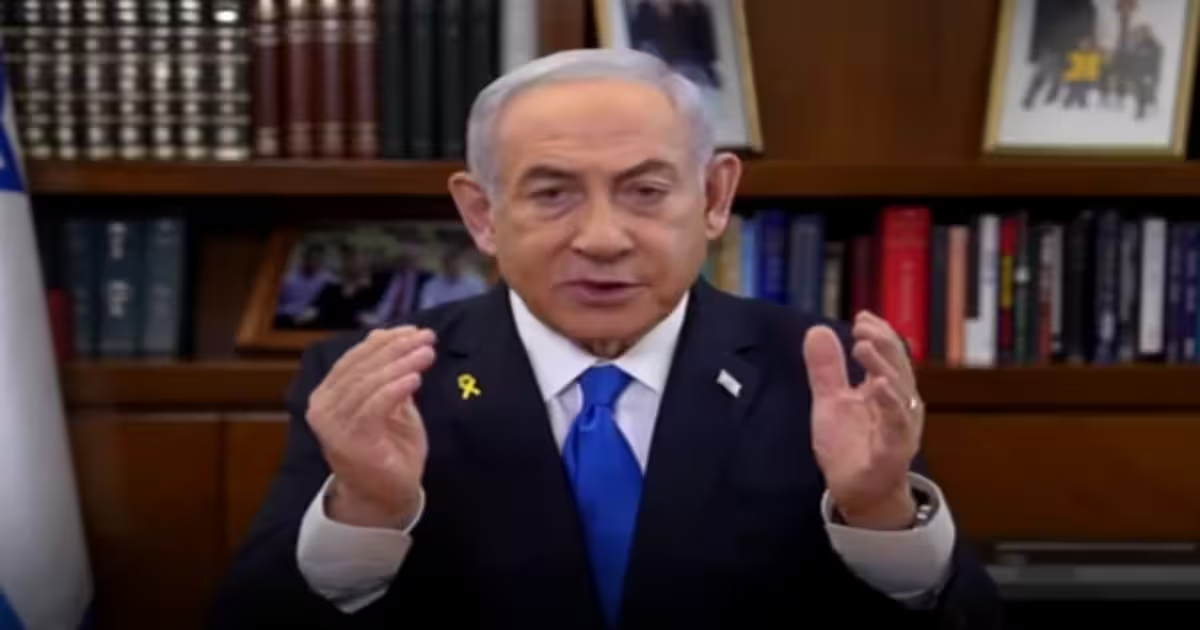In a significant escalation, Israeli forces have launched a ground operation in southern Lebanon, targeting Hezbollah positions. This marks the first ground combat between Israel and Hezbollah since 2006, and it comes amid growing tensions in the region. Prime Minister Benjamin Netanyahu has vowed to neutralize Hezbollah’s threat as part of Israel’s broader military campaign.
Israeli Ground Operation Begins in Southern Lebanon
On Tuesday, October 1, 2024, Israeli forces launched a major ground incursion into southern Lebanon, intensifying the conflict with Hezbollah, the Iranian-aligned militant group. This move comes amid an escalating series of hostilities between Israel and Hezbollah, with Hezbollah launching rockets into northern Israel in response to the ongoing conflict in Gaza.
The Israeli military described the operation as a “limited, localized” ground campaign focused on Hezbollah strongholds near the Israel-Lebanon border. These areas, according to Israeli officials, pose a direct threat to northern Israeli settlements.
Netanyahu Expands Campaign Against Hezbollah
Prime Minister Benjamin Netanyahu has taken a strong stance against Hezbollah, following devastating airstrikes targeting the group’s infrastructure. These strikes reportedly claimed the life of Hezbollah’s long-time commander, Hassan Nasrallah, significantly weakening the group’s leadership. Netanyahu has framed the ground incursion as a necessary step to ensure Israel’s security, promising to continue efforts to dismantle Hezbollah’s military capabilities.
“We are fully committed to protecting our citizens and will take whatever measures are necessary to stop the attacks from Hezbollah,” Netanyahu said in a statement. He emphasized that Hezbollah, with support from Iran, represents a major threat to Israel’s northern borders, and this ground operation is aimed at neutralizing that threat.
The First Ground Conflict Since 2006
This ground operation marks the first time Israeli forces have engaged Hezbollah in direct combat on Lebanese soil since their month-long war in 2006. That conflict resulted in heavy casualties on both sides and widespread destruction in Lebanon. The 2024 ground incursion, while described as “targeted and localized,” has raised concerns about the potential for further escalation into a broader regional war.
Israel’s military has confirmed that its forces have entered several border-adjacent villages in southern Lebanon. These areas are known to be Hezbollah strongholds, where the militant group has entrenched its forces since the last major conflict.
Hezbollah’s Response and the Regional Impact
Hezbollah has been launching rockets into northern Israel since the outbreak of the Gaza war, aligning itself with other Iranian-backed groups in the region. The group’s actions have added another front to Israel’s already complex military engagements in Gaza. Israeli airstrikes targeting Hezbollah positions have escalated tensions, with the death of Nasrallah representing a major blow to the group.
Hezbollah has vowed to retaliate for Nasrallah’s death, with its leadership stating that Israel’s ground incursion will not go unanswered. Regional analysts fear that continued clashes could draw in other Iranian-backed militias from Syria or Iraq, leading to a wider conflict.
What’s Next for the Israel-Hezbollah Conflict?
As Israel’s ground operation continues, the question remains: how far will this conflict go? While the Israeli government has framed the mission as limited, it is unclear whether Hezbollah will escalate its attacks or if other regional actors will become involved. International observers are closely monitoring the situation, with fears that this could spiral into a broader regional war, given Hezbollah’s connections to Iran and other militant groups across the Middle East.
FAQ: The Israel-Hezbollah Conflict
Q: What triggered the latest conflict between Israel and Hezbollah?
A: The latest escalation between Israel and Hezbollah began when Hezbollah started launching rockets into northern Israel in response to the ongoing Israel-Gaza conflict. Israel responded with airstrikes on Hezbollah positions, leading to further escalation.
Q: What was the significance of Hassan Nasrallah’s death?
A: Hassan Nasrallah, the long-standing commander of Hezbollah, was reportedly killed in an Israeli airstrike. His death represents a significant blow to Hezbollah’s leadership and could alter the group’s strategy moving forward.
Q: Why did Israel launch a ground operation in southern Lebanon?
A: Israel launched the ground operation to target Hezbollah positions near the Israeli border, which are seen as a direct threat to northern Israeli settlements. The operation is described as “limited” and aims to dismantle Hezbollah’s military capabilities in the region.
Q: When was the last ground conflict between Israel and Hezbollah?
A: The last major ground conflict between Israel and Hezbollah occurred in 2006 during a month-long war that resulted in heavy casualties and widespread destruction in Lebanon.
Q: Could this conflict escalate into a wider war?
A: There is concern that the conflict could escalate, especially with Hezbollah’s ties to other Iranian-backed militias in the region. If additional actors become involved, the conflict could spread beyond Lebanon and Israel.
Q: What is Hezbollah’s role in the region?
A: Hezbollah is a Shia militant group based in Lebanon, heavily supported by Iran. It has a strong military presence in Lebanon and Syria and has been involved in various conflicts against Israel, including rocket attacks and ground skirmishes.
Q: How has the international community responded?
A: While there has been widespread concern about the potential for regional escalation, many international actors are calling for de-escalation and a return to diplomatic solutions. However, given the complexities of the conflict, international mediation efforts face significant challenges.
